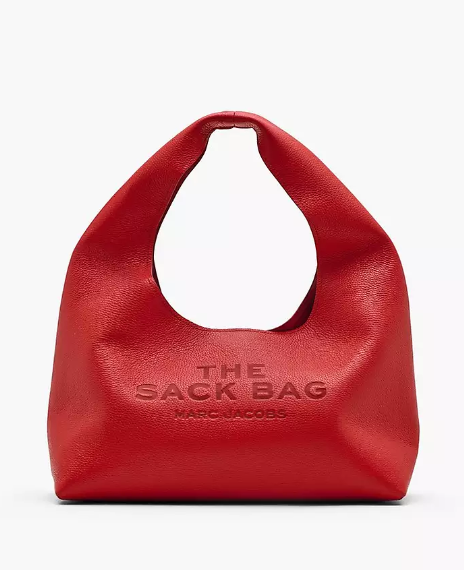Ethika represents a growing movement focused on integrating ethical principles into everyday life. From fashion to business, individuals and organizations are adopting ethika to promote sustainability, fairness, and social responsibility. This article delves into the origins, principles, and applications of ethika, showcasing how it shapes modern lifestyles and industries for a better tomorrow.
The Origins and Philosophy of Ethika
Ethika’s emphasis on actionable ethics has reshaped fashion, transforming it from a driver of exploitation to a catalyst for sustainability and equity. At its core, ethical fashion prioritizes sustainable materials, replacing resource-intensive fabrics like conventional cotton with organic alternatives or innovative textiles derived from recycled plastics and agricultural waste. Brands like Patagonia exemplify this shift, using recycled polyester and regenerative organic cotton to minimize environmental harm.
Equally critical are fair trade practices, ensuring garment workers receive living wages and safe conditions. People Tree, a pioneer in ethical fashion, partners with Fair Trade-certified factories, empowering communities while reducing labor exploitation.
The rise of slow fashion challenges disposable culture, advocating for mindful consumption through durable designs and repair-friendly clothing. Companies like Eileen Fisher encourage customers to return worn items for refurbishment, extending garment lifecycles.
These practices collectively reduce waste—85 billion garments are discarded annually—and lower carbon footprints. Ethika’s influence also reshapes consumer psychology: 64% of millennials now prioritize sustainability in purchases. By marrying ethics with aesthetics, ethical fashion proves responsibility need not compromise style, setting a precedent for industries beyond clothing.
Ethika in Fashion and Consumer Choices
Building on the philosophical emphasis of Ethika as a catalyst for everyday ethical action, its influence on fashion and consumer choices reshapes how industries and individuals interact with clothing. Ethika prioritizes sustainable materials—organic cotton, recycled polyester, and plant-based dyes—to curb environmental degradation. Brands like Patagonia and Stella McCartney exemplify this shift, replacing synthetic fabrics with biodegradable alternatives while maintaining aesthetic appeal.
Equally critical are fair trade practices, which ensure living wages and safe conditions for workers. Companies such as People Tree partner with artisans in developing nations, fostering economic equity through transparent supply chains. This aligns with Ethika’s rejection of exploitative labor, transforming consumer behavior by linking purchases to social justice.
The rise of slow fashion further embodies Ethika’s principles, countering fast fashion’s wastefulness. Brands like Eileen Fisher promote durable, timeless designs and repair programs, reducing textile waste. Consumers increasingly prioritize quality over quantity, reflecting a cultural shift toward mindful consumption.
These practices collectively reduce carbon footprints, preserve ecosystems, and empower marginalized communities, proving that ethical frameworks can drive systemic change. As Ethika permeates consumer culture, it sets the stage for its broader application in corporate strategies, bridging individual choices with institutional accountability.
Ethika in Business and Corporate Responsibility
In the realm of business, Ethika has catalyzed a shift from profit-centric models to frameworks prioritizing holistic accountability. Companies are redefining success by embedding ethical sourcing, transparent supply chains, and inclusive stakeholder engagement into their DNA. For instance, outdoor apparel giant Patagonia not only ensures fair labor practices but also traces materials back to environmentally responsible suppliers, aligning profit with planetary stewardship. Similarly, Ben & Jerry’s integrates social justice into its operations, advocating for climate action and racial equity while maintaining financial viability.
The rise of stakeholder capitalism underscores Ethika’s influence, as businesses increasingly prioritize employees, communities, and ecosystems alongside shareholders. Tech leader Salesforce exemplifies this through its 1-1-1 model, dedicating 1% of equity, product, and employee time to societal causes. Transparent supply chains, such as those adopted by Unilever, empower consumers and investors with data on environmental footprints, fostering trust and loyalty.
These practices reveal a broader trend: Ethika-driven businesses outperform peers in long-term resilience, proving that ethical rigor and profitability are not mutually exclusive. By centering human and ecological well-being, corporations become catalysts for systemic change—a bridge between consumer activism and the grassroots movements reshaping society.
The Social Impact of Ethika Movements
Ethika movements have catalyzed profound societal shifts by empowering grassroots activism and fostering community-led solutions to systemic inequities. Rooted in principles of inclusivity and collective well-being, these initiatives prioritize marginalized voices, transforming advocacy from abstract ideals to tangible action. For instance, organizations like Fair Trade USA intertwine economic equity with ethical labor practices, ensuring farmers and workers receive fair compensation while educating consumers on supply chain justice. Similarly, mutual aid networks—such as those that surged during the COVID-19 pandemic—exemplify Ethika’s emphasis on solidarity, redistributing resources to vulnerable populations without bureaucratic barriers.
Localized movements, like the Green Belt Movement in Kenya, merge environmental stewardship with gender equity by training women to lead reforestation efforts, linking ecological health to community empowerment. Ethika also reframes activism through digital inclusivity, leveraging platforms like #StopHateForProfit to hold corporations accountable for harmful algorithms. By centering collaboration over hierarchy, Ethika fosters systemic change that transcends individualism, paving the way for the next chapter’s focus on personal ethical integration. These efforts collectively prove that societal transformation begins when communities reimagine power structures through empathy and shared responsibility.
Practical Steps to Incorporate Ethika into Daily Life
Transitioning ethical principles from theory to daily practice requires intentional, incremental shifts. Begin with mindful consumption: pause before purchasing to ask who made this, under what conditions, and at what environmental cost? Keep a checklist—1. Assess necessity, 2. Research brand transparency via tools like Good On You or B Corp directories, and 3. Prioritize products with Fair Trade, organic, or carbon-neutral certifications.
Support ethical brands by redirecting spending toward local cooperatives, thrift stores, or companies championing equitable wages. For budget-conscious choices, participate in clothing swaps or community-supported agriculture. Amplify impact by publicly praising ethical businesses and pressuring others through social media or shareholder advocacy.
Embrace waste reduction by adopting circular habits: repair garments, carry reusable containers, and compost organic waste. Start small—replace single-use items with bamboo toothbrushes or silicone food wraps. Plan meals to cut food waste, and donate unused items to mutual aid networks.
Finally, join community-driven efforts like tool libraries or repair workshops, aligning individual actions with collective Ethika movements. Each step, layered consistently, weaves ethics into the fabric of daily life without overwhelm.
Conclusions
Ethika is more than a concept—it’s a transformative approach to living and doing business. By embracing its principles, we can foster sustainability, equity, and positive change across industries and communities. Whether through personal choices or collective action, integrating ethika into daily life paves the way for a more conscientious and impactful future.
















